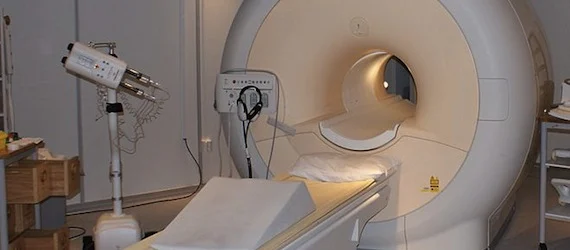Two recently published studies from Canada and Spain have looked at the appropriateness of MRI requests.
In a research letter published in JAMA Internal Medicine, Derek J. Emery, of the University of Alberta, Edmonton, Canada, and colleagues examined the appropriateness of requests for outpatient MRI of the lumbar spine and of the head for headache, which are common indications and may be sometimes inappropriate.
Data were collected from 500 lumbar spine requisitions and 500 head for headache requisitions from the University of Alberta Hospital from May 2008 to September 2009 and the Ottawa Hospital from September 2008 to March 2010
Only 443 of 1000 lumbar spine MRI requests were considered appropriate, with the remaining split between inappropriate (285 of 1000, 28.5 percent) or of uncertain value (272 of 1000, 27.2 percent). Family physicians had a lower rate of appropriate MRI ordering for the low back than other specialties (33.9 percent compared to 58.1 percent for other specialities). Most MRI scans requested for headache (82.8 percent) were appropriate, according to the study results. Only one indication, investigation of postoperative leg or back pain, was associated with an almost certain rating of appropriate (160 of 167, 95.8 percent). However, it accounted for only 16.7 percent of all MRI orders for the low back. For all other indications, which accounted for 83.3 percent of tests, the probability of an uncertain or inappropriate rating was three times greater than the probability of an appropriate rating.
“Eliminating inappropriate scans and some of uncertain value could reduce the harm that accrues from unneeded investigations and result in significant cost savings,” the study concludes.
Reference:
(JAMA Intern Med. Published online March 25, 2013. doi:10.1001/jamainternmed.2013.3804.)
Appropriateness of lumbar spine magnetic resonance imaging in Spain
In a study published online in the European Journal of Radiology, researchers looked at the proportion of lumbar spine magnetic resonance imaging (LSMRI) which are inappropriately prescribed in routine practice.
LSMRI performed prospectively on 602 patients in 12 Radiology Services across 6 regions in Spain, were classified as 'appropriate', 'uncertain' or 'inappropriate', based on the indication criteria established by the UK National Institute for Clinical Excellence, the American College of Radiology, and current evidence-based clinical guidelines. Studies on patients reporting at least one 'red flag' were classified as 'appropriate'. A logistic regression model was developed to identify factors associated with a higher likelihood of inappropriate LSMRI, including gender, reporting of referred pain, health care setting (private/public), and specialty of prescribing physician. Before performing the LSMRI, the radiologists also assessed the appropriateness of the prescription.
Eighty-eight percent of LSMRI were appropriate, 1.3% uncertain and 10.6% inappropriate. The agreement of radiologists’ assessment with this classification was substantial (k=0.62). The odds that LSMRI prescriptions were inappropriate were higher for patients without referred pain [OR (CI 95%): 13.75 (6.72; 28.16)], seen in private practice [2.25 (1.20; 4.22)], by orthopaedic surgeons, neurosurgeons or primary care physicians [2.50 (1.15; 5.56)].
The authors conclude that the efficiency of LSMRI could be improved in routine practice, without worsening clinical outcomes.
Reference:
"Appropriateness of lumbar spine magnetic resonance imaging in Spain". Francisco M. Kovacs, Estanislao Arana, Ana Royuela, Alberto Cabrera, Carlos Casillas, Pilar Piñero, María Vega, Beatriz Asenjo, Ana Estremera, Guillermo Amengual, Helena Sarasíbar, Pilar Ferrer, Antonio Manjarrés, Joaquín Zamarro, Francisco Bravo-Rodríguez, Juan Carlos Paniagua, Javier Mota, Teresa Sánchez-Sagrado, Víctor Abraira. European Journal of Radiology - 18 February 2013 (10.1016/j.ejrad.2013.01.017).
Latest Articles
MRI, Head, Back
Two recently published studies from Canada and Spain have looked at the appropriateness of MRI requests. In a research letter published in JAMA Internal...










